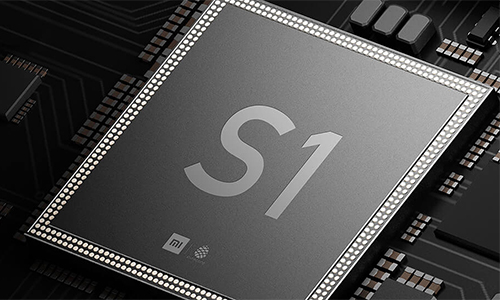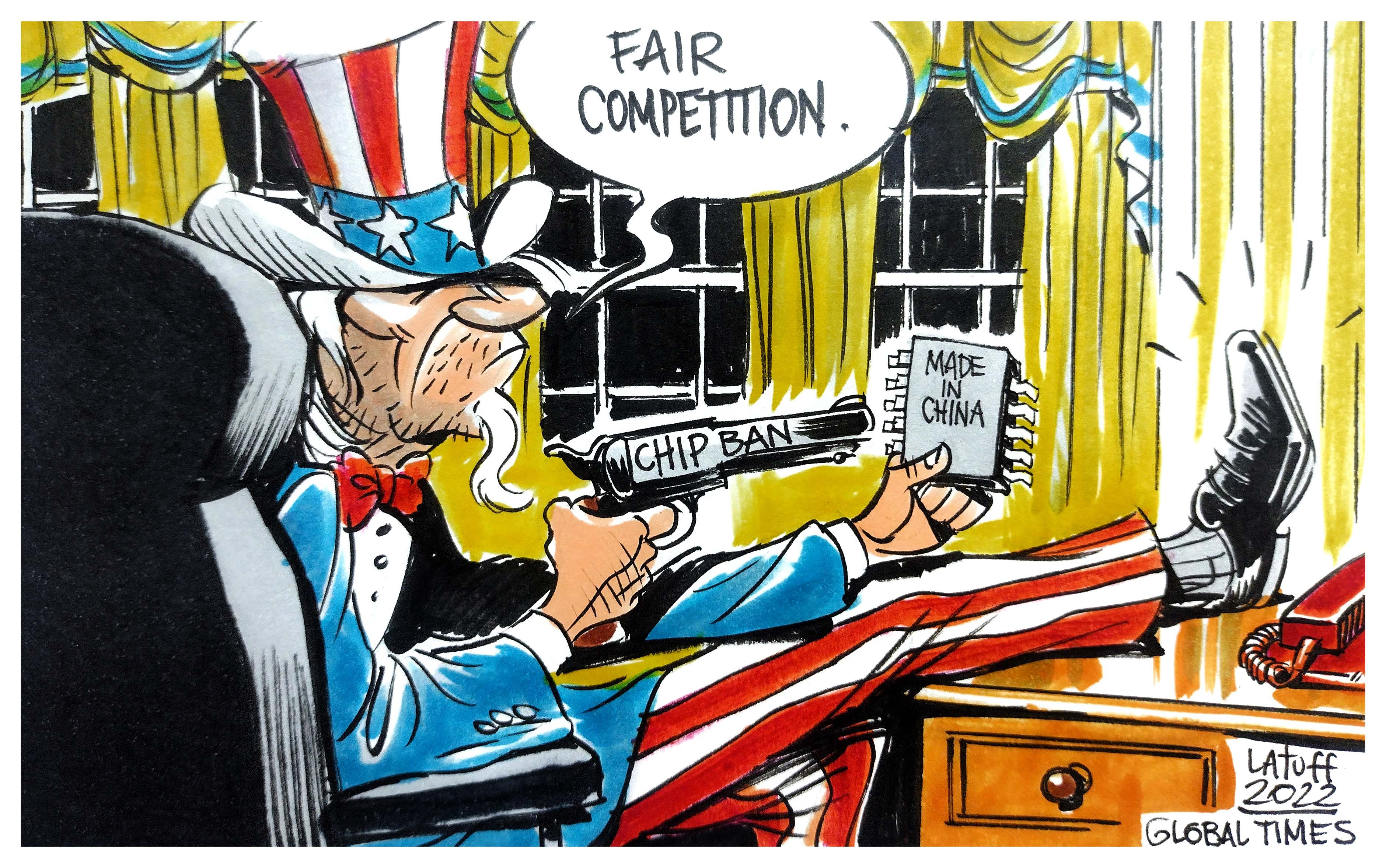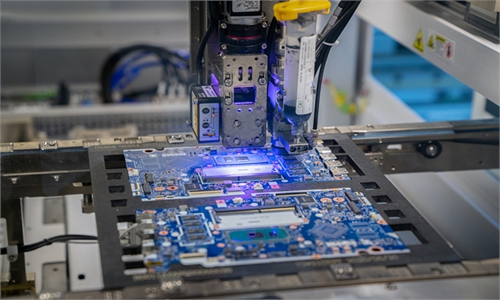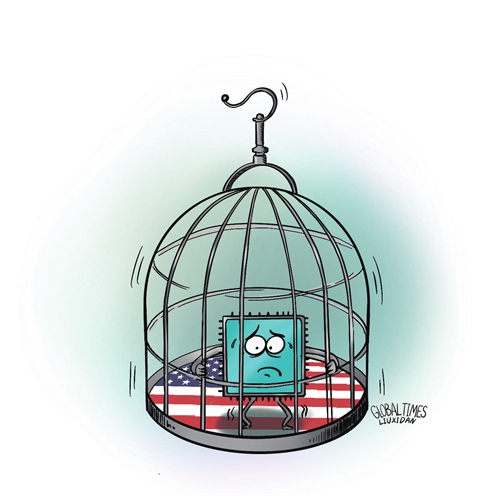US turns to 'entity list' again after running short of cards against China's chip rise

Xiaomi's Surge S1 chip Photo: a screenshot of mi.com
The US added three dozen Chinese high-tech companies to a trade blacklist that bars them from accessing US technologies and components, in what experts called a "last-ditch" effort after many cards previously played by the Biden administration did not achieve the expected effects in hobbling China's semiconductor industry.
The irrational practice also adds to a flurry of Washington's export control measures on Chinese chipmakers, which has been palpably scaled up since a sweeping ban against Beijing in October and laid bare the US' desperate attempt to maintain supremacy in the global tech frontier, industry observers said.
The US commerce department has put 36 Chinese firms on the "entity list," a move that means US firms will need to apply for licenses that are very hard to obtain to export critical technologies to those companies, according to a Financial Times report.
Among the targeted companies are Yangtze Memory Technologies (YMTC), a leading Chinese producer of memory chips, and artificial intelligence (AI) chip maker Cambricon Technologies, the report disclosed.
Furthermore, more than half of those three dozen companies including Cambricon will face even tougher penalties, and are subject to what is known as the foreign direct product rule that blocks them from accessing technology made anywhere in the world by the US, a sanction the US had previously used on Chinese telecom equipment maker Huawei.

Deviation from fair competition. Cartoon: Carlos Latuff
Last card
The US has once again returned to the tactic of entity lists after it used a mixed array of methods to step up its crackdown on China's rising chip industry recently, including luring Taiwan Semiconductor Manufacturing Co to set up plants in the US, trying to form an exclusive chip alliance with several Asian economies, as well as persuading Japan and the Netherlands to join export controls on China.
In October, the US escalated its attacks on the Chinese semiconductor industry by unveiling what industry observers said were the most stringent export controls that ban Chinese companies from buying advanced chips and chip-making equipment without a license.
The Biden administration also simultaneously placed more than 30 Chinese companies, including YMTC, on the US' "unverified list," and set a 60-day window for the companies to allow the US to conduct investigations or face the risk of being put onto the entity list, according to another Financial Times report.
"The clampdown launched by the US against the Chinese chip industry has morphed into a full-fledged tech war, and there's no sign of it abating unless the US finds itself securing a superior position over China," Han Xiaomin, general manager of Jiwei Insights in Beijing, told the Global Times on Friday.
But as most of these moves have not proven as effective as the US had expected, whether because of push-back from its allies in getting on board with the US ban or for other reasons, export controls seem to be the last-ditch effort that the US is pinning its hopes on to hurt China's tech industries.
According to Han, the entity list is likely to be the most powerful weapon the US can use against China, as it is almost impossible for US supplies to get an export license based on the "presumption of guilt" principle.
"What else can the US do? Maybe just include more Chinese companies on the list in the next step," he said.
Xiang Ligang, a veteran tech analyst, also said that except for chips, in major export areas, the US will find it hard to block upstream supplies to China.
"What else can they block? In transportation, China cooperates with Europe and is making its own planes. In energy, China is increasing cooperation with the Middle East and Russia. Therefore, the US is trying desperately to maintain its interests and advantages over China in the chip area," he noted.
Fu Liang, a veteran telecom observer, also told the Global Times that the US has to push ahead with its "traditional tactic" of entity lists, as it is very hard to push new crackdown measures that will win support from the international community.
China's Ministry of Commerce issued a statement on Friday in response to the news, saying that China firmly opposes the move and will take the necessary measures to resolutely safeguard the legitimate rights and interests of Chinese enterprises and institutions.
"The US side generalized the concept of national security, abused export control and other measures, and used national power to expand the crackdown on Chinese enterprises and institutions, which is a typical practice of market distortion and economic hegemony," the statement noted.
Cambricon noted on Friday that it is still assessing the impact of the US move on the company, jwview.com reported.
Turning point
Experts also noted that the US trade ban will also be futile in the future, as China's chip industry is developing rapidly and has now reached a critical point in which breakthroughs in core technologies are likely to be achieved soon.
South Korea just reported its first trade deficit with China in May, breaking an unbroken 333-month-long streak of surpluses, a change that many experts said is driven by a shifting balance in the chip trade due to China's rising chip production capabilities.
However, despite the maturing of China's chip industry and the US running out of cards against Chinese chip firms, Chinese chip companies should still prepare themselves for a continued crackdown from the US government in the chip sector and take the necessary measures to fend off external pressure, such as by resorting to lawsuits, analysts noted.
"The Biden administration will likely double down on the strength of its crackdown measures against China's chip industry, even though its past tactics didn't prove that smooth, as the chip strategy has become a huge gamble in Biden's political life," Chen Jia, an independent research fellow on international strategy, told the Global Times.
China recently launched a trade dispute at the World Trade Organization against the US over its chip export controls.





